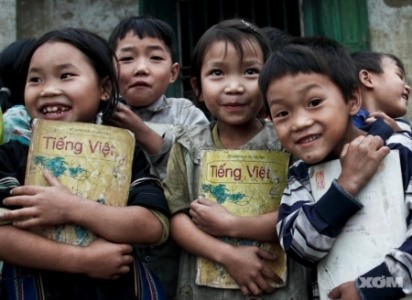 Society
Society

The Vietnamese Government affirmed that agricultural development was the best solution to the "Zero Hunger" and "poverty reduction" challenges, contributing to the goal of sustainable hunger eradication, food security and improved nutrition.
 |
| Việt Nam committed to being free from hunger by 2025. — Photo dantri.com.vn |
HÀ NỘI — The Vietnamese Government affirmed that agricultural development was the best solution to the "Zero Hunger" and "poverty reduction" challenges, contributing to the goal of sustainable hunger eradication, food security and improved nutrition.
Minister of Agriculture and Rural Development Nguyễn Xuân Cường made the statement at the International Support Group (ISG) Plenary Meeting 2018 held on Thursday in Hà Nội.
At the meeting, he called for co-operation and support from international partners, related ministries and agencies, domestic and foreign businesses, and voluteers to jointly implement the National Action Plan on Zero Hunger in Việt Nam by 2025.
“Việt Nam aims to provide enough food and nutrition to enhance Vietnamese people’s mental and physical health, and, at the same time, to implement the Sustainable Development Goal 2 (SDG 2) to which the Government has committed with the UN,” the minister said.
The Zero Hunger initiative was launched by United Nations Secretary General Ban Ki-moon in 2012.
Việt Nam was one of the countries with remarkable achievements in reducing the number of hungry and poor people.
However, some gaps remain. The child malnutrition rate remains high, based on the WHO classification. Particularly, the stunting–form malnutrition rate is especially high in provinces in the Central Highlands, north central and northern mountainous region.
Through the National Action Plan (NAP), Việt Nam aims to narrow the existing gaps and improve the country’s food security and nutrition.
The five key targets of the NAP by 2025 are that households will have enough food with sufficient nutrition all year round; malnutrition in children under two will be reduced; sustainable food systems will be developed; productivity and income of most small-scale production households will increase; and food will not be lost or wasted.
As agriculture and nutrition often involve different sectors and require diverse expertise, a complex action plan targeting different levels ranging from policymakers to community-level stakeholders will be implemented by different ministries.
“As a specialised agency of the United Nations with a clear mandate to address hunger and poverty, FAO has been taking the lead in undertaking the global Sustainable Food and Agriculture programme to contribute to the Zero Hunger goal,” said Albert T Lieberg, a representative of FAO Việt Nam.
“Achieving food security requires an integrated and holistic approach and we believe that, with intersectional collaboration and partnerships, the Vietnamese people will surely be able to reach a shared conviction of the National Action Plan so hunger can be eliminated in our lifetimes,” he said. — VNS




